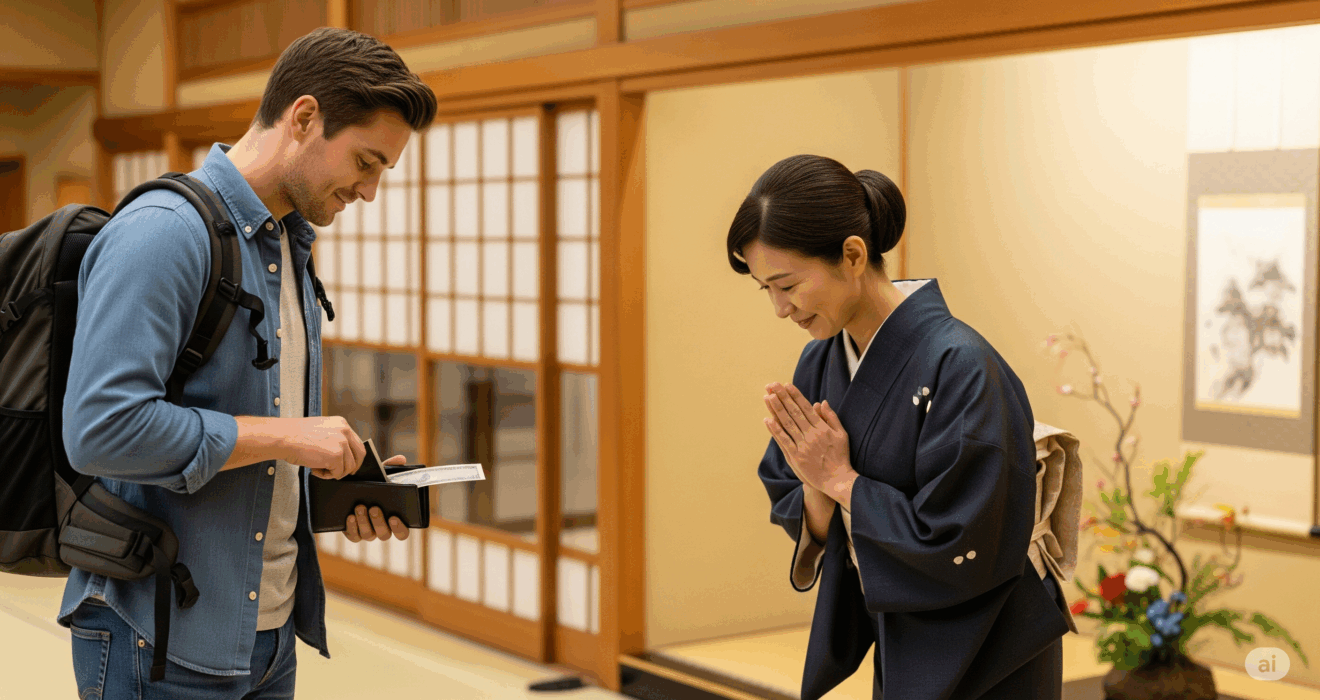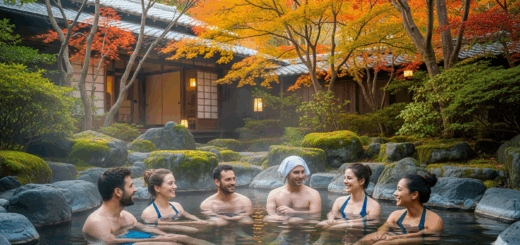“Tips are not needed” Japan trip to touch the heartfelt “hospitality”

When traveling to foreign lands, the customs of the country, especially how to show appreciation for services, are key to enriching your journey. If you visit Japan from a country with a tip culture, you may find that Japanese customs are surprisingly different. In conclusion, in Japan, no tip is required in principle. On the contrary, when you try to give a tip, it often confuses the other person.
Why is there no need for a tip?
At the root of this lies in Japanese business practices and unique cultural values. First of all, in Japan, the spirit of ‘hospitality’ is the basis of the service industry.. This is the idea of giving guests a heartfelt welcome and providing the best service without expecting a financial return. It is our greatest joy and pride for our service providers to make our customers happy.
Also, in many service industries in Japan, employees do not depend on tips, but the salaries paid by companies make a living.. In addition, it is common for luxury hotels and restaurants to already include ‘service charges’ in the price.. This service charge acts as a tip instead of a tip, and the amount of money paid by the guests includes a legitimate price for the service. Against this background, if you try to force tips, you may be politely refused, saying, ‘You can’t receive extra money,’ or the clerk will chase after you because you think it’s the money you left behind..
Receipt of tips is a ‘compliance violation’!? Strict rules behind the spirit of service

Even if you try to give tips, there are not only cultural differences, but also strict compliance (compliance with laws and regulations) of each company, not just a cultural difference behind Japanese employees. In many companies, employees are prohibited from receiving money (including tips) and goods other than regular wages, and violating this may even result in disciplinary action.
These rules are based on Japan’s own way of thinking that the quality of service does not change with or without tip. Service charges are already included in the price, and employees work in a tip-free pay structure. Therefore, receiving a tip is considered an act that goes against the rules set by the company. The simplest and most reliable way is to say ‘thank you’ with a smile when you want to express your heartfelt gratitude.
A form of heartwarming gratitude that is transmitted instead of a tip
If you can’t give a tip, you may feel that you can’t express your gratitude even though you received a great service. However, in Japan, there are many ways to convey a deeper and deeper sense of gratitude instead of tipping. The simplest and most effective is to say ‘thank you’ with a smile and say ‘thank you’.. If it’s a meal, the one word ‘It was very delicious!’ is the best compliment to the creator..
In addition, behaviors that express your heartfelt gratitude include eating a clean meal and cleaning up the seats you used before leaving.. If you have the time, posting positive reviews on websites and social media is also a great way to help your shop or service provider..
Also, if you really want to give shape to your gratitude, you can choose to send small souvenirs or letters brought from your own country instead of money. Even in this case, it would be rude to hand it over, so it is Japanese polite manners to put it in an envelope or a paper bag, just like when handing over a souvenir or a letter.
Exceptional cases and notes
In a small part of the situation, money may be accepted as a tip or ‘kokoroduk’. For example, when you are staying at a high-class traditional inn or hiring a private guide. In particular, individual guides specializing in foreign tourists are often accustomed to tipping.
Finally
Traveling in Japan is full of quality service and warm relationships, without the need for the financial reward of tipping. Japanese service workers take pride in providing great work. The best way to respond to their dedication is to treat them with sincere gratitude and respect for their service. A way of expressing gratitude through words and attitudes and respecting Japanese culture will be the most valuable tip for them.

